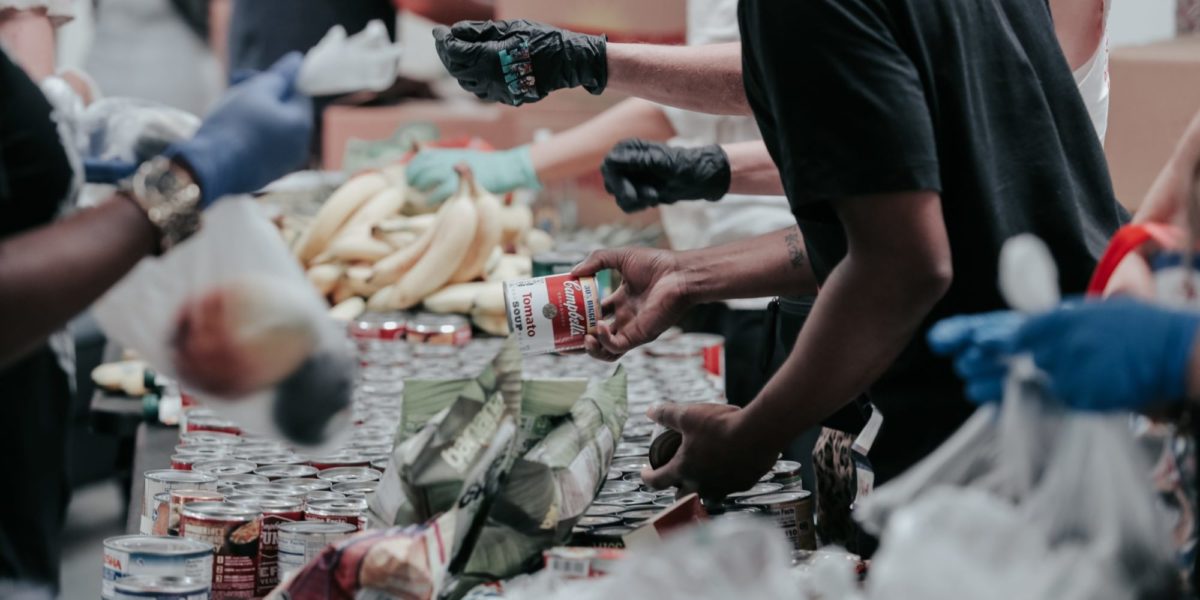While grocery chain CEOs are touting record profits for shareholders, not only are the employees being undervalued—they’re also being underpaid.
Grocery store workers are among the lowest-wage earners in the country, with many positions starting at minimum wage and without benefits. And while the wages haven’t changed, the work conditions in the pandemic have, and for the worse.
Now, workers and labor activists are calling on grocery chains such as Loblaws to reintroduce the $2 per hour “hero pay” bonus—more accurately known as hazard pay — a temporary raise introduced early in the pandemic that the chains rescinded even before the first wave ended.
Yet workers are still showing up, spraying surfaces and using plastic barriers that are unlikely to trap an airborne illness.
Many retail locations are only providing staff with the non-medical blue masks that a recent Wall Street Journal article demonstrated are much less effective than a three-ply mask. That’s despite calls from Canada’s top doctor, Dr. Theresa Tam, to start using masks that offer better protection.
The $2 per hour temporary raise lasted less than three months, ending in June 2020, never to return. Eighteen months later, the hazards that necessitated the wage incentive program remain, with health care systems across the country on the brink of collapse. Now, without paid sick leave programs in most provinces, many workers are forced to choose between going to work and spreading COVID-19 or staying home and losing their heat in the middle of winter.
Somehow, each grocery chain’s hazard pay program ended on the same day, a decision the House of Commons’ industry committee questioned, when it called on executives to testify in 2020.
“I am incensed to think that in a time when the grocery business during the pandemic has actually seen their revenues increase, we see the companies turning to take away pandemic pay of the essential workers who we’ve been counting on so much,” Nova Scotia NDP leader Gary Burrill said when hazard pay ended, pointing to a growing economic disparity between the owners of major grocery chains and the people who actually do the work.
Big profits not shared
With Canadian families expected to spend an extra $966 in groceries this year, grocery chains are one of the few industries booming as a direct consequence of the pandemic.
Federal NDP MP Brian Masse (Windsor West) sent a Jan. 10 letter to the Chair of the House of Commons Industry Committee calling for hearings and a subsequent study related to “the current challenges for competition, inflation and pricing in the Canadian grocery market.”
Lisa Cameron, writer and organizer with the Halifax Workers’ Action Centre, tells rabble.ca that while the $2 per hour hazard pay is a start, it still leaves many low-income Canadians far from a livable wage.
Cameron says workers have devoted themselves “tirelessly” to their frontline work, while being both “underpaid and unappreciated.”
“It isn’t as though pandemic pay is unaffordable,” Cameron noted, “but instead of rewarding their hardworking staff, Loblaws and others have chosen instead to reward their shareholders.”
“Major grocery chains should recognize the risks undertaken by their employees and compensate them accordingly,” Cameron says. “Even if these grocery chains reintroduce hazard pay for their employees, the fact remains that the minimum wage is too low across the country.”
Pam Frache is the coordinator of the Ontario advocacy group Justice For Workers: Decent Work For All. The organization, formerly known as the Fight for $15 and Fairness, relaunched in May 2021. Now, they argue make pandemic pay should be made permanent by raising the minimum wage to $20 per hour. Frache credits the group’s advocacy for Ontario premier Doug Ford’s decision reinstate the $15 minimum wage his government had cut shortly after taking office.
Frache points out that even when hazard pay was in place, there was zero compensation for the thousands of employees of businesses that had to temporarily close due to COVID-19. Not only that, but the workers contracted to do the deep cleaning were ineligible for the bonus.
“It just really shows how completely intransigent these employers can be. They do not want to part to park with a penny of their profits,” Franche said. The only way to ensure workers are paid fairly, he added, is through legislation.
Cameron agrees, noting governments can’t keep trusting employers to do the right thing when it comes to paid sick days, livable wages, and access to health and dental coverage.
“These aren’t decisions that we ought to leave in the hands of employers. These are decisions that ought to be determined by law,” Cameron says.



